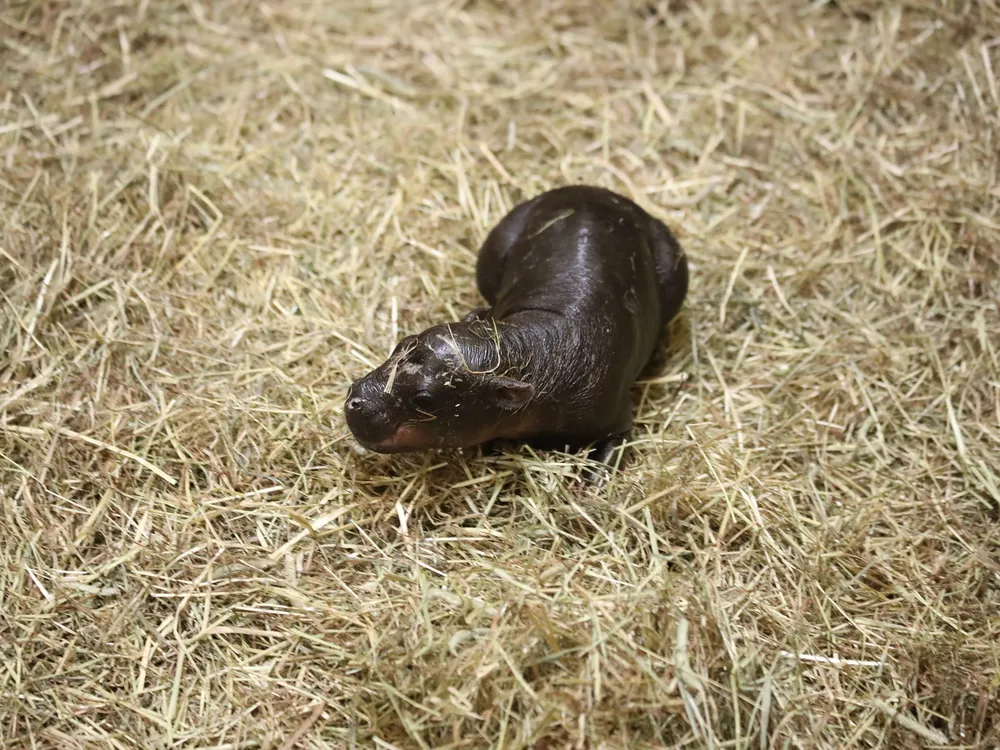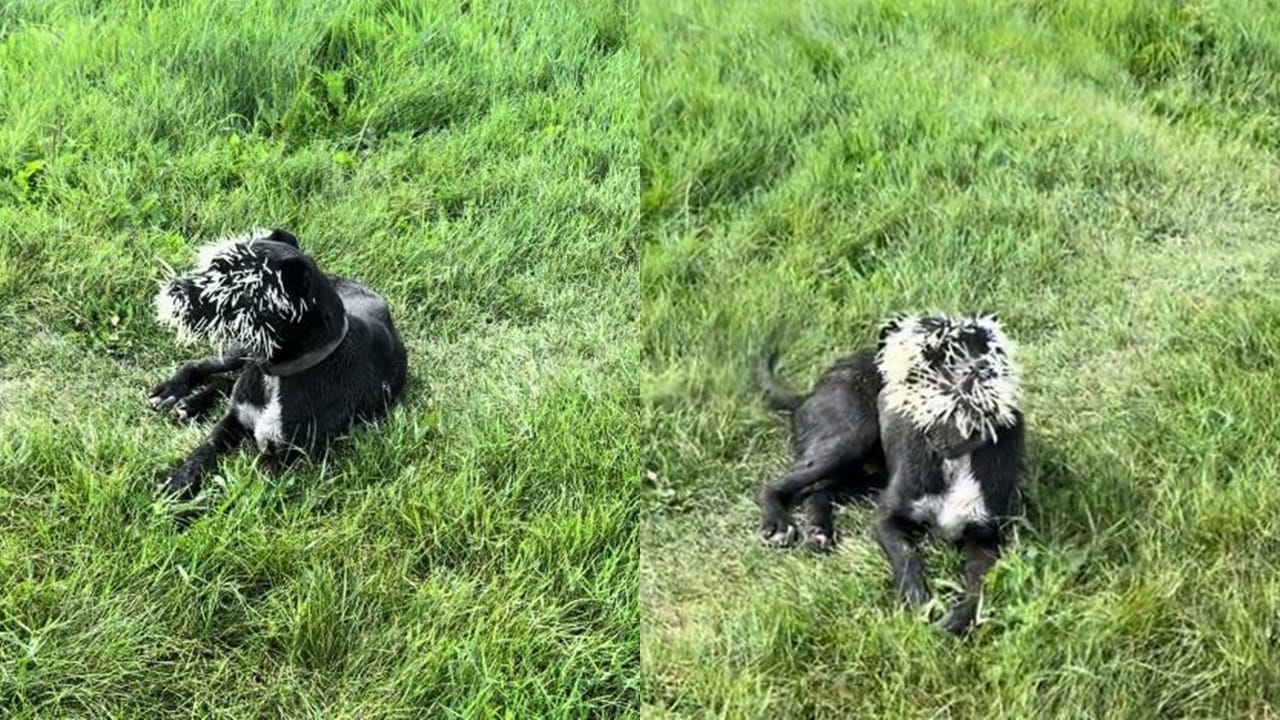Scotland’s Edinburgh Zoo recently welcomed a new star—a baby pygmy hippo named Haggis, born on October 30 to proud parents Gloria and Otto. This tiny bundle of joy has already captured attention online, continuing the legacy of viral pygmy hippos like Thailand’s beloved Moo Deng.
An Adorable New Addition to Edinburgh Zoo
Haggis, though not yet available for public viewing, is thriving under the care of Edinburgh Zoo’s staff, who are sharing photos and videos to help fans stay connected. This little hippo is growing quickly, but she’ll stay out of the spotlight for now as keepers monitor her progress closely.

Following in the Footsteps of Moo Deng
Haggis’ arrival comes hot on the heels of another internet sensation, Moo Deng, a pygmy hippo born in July at Khao Kheow Open Zoo in Thailand. Named after a popular pork dish, Moo Deng went viral in September, with fans flocking to catch a glimpse. She became such a sensation that visitors were limited to short viewing sessions.
Similar to Moo Deng, Haggis has a playful name rooted in local food culture. Named after Scotland’s national dish—a savory pudding made from animal organs and spices encased in a sheep’s stomach—Haggis’ name gives a humorous nod to Scottish heritage.
A Lighthearted Rivalry
Upon Haggis’ birth announcement, Edinburgh Zoo couldn’t resist sparking a friendly rivalry between her and Moo Deng. Social media posts teased, “Moo Deng? Who deng? Introducing… Haggis!”
In a fun follow-up, the zoo posted a “notes app apology” on X (formerly Twitter), stating, “We were wrong to pit Haggis and Moo Deng against each other. There’s room in this world for two beautiful pygmy hippo divas.”
Why Pygmy Hippos Need Our Attention
Beyond their adorable looks, both Haggis and Moo Deng represent a critically endangered species. According to the International Union for Conservation of Nature, fewer than 2,500 pygmy hippos remain in the wild, facing threats from poaching and habitat destruction. Native to West Africa, these hippos primarily live in the forests of Côte d’Ivoire, Guinea, Liberia, and Sierra Leone, where their numbers have dwindled over the years.
To combat this decline, zoos worldwide have established breeding programs. These efforts not only help increase the pygmy hippo population but also raise awareness of their plight. Last week, Houston Zoo joined the conservation effort by introducing Akobi, a young male pygmy hippo transferred from San Francisco based on breeding recommendations by the Association of Zoos and Aquariums.
A Family Legacy of Conservation
Haggis isn’t the first pygmy hippo in her family to contribute to conservation. Her older sister, Amara, was part of a similar breeding program and was relocated to London Zoo, where she was introduced to a mate named Thug. With luck, Haggis may one day participate in a similar program, further supporting efforts to preserve her species.
In the meantime, Haggis serves as an ambassador for her kind, helping Edinburgh Zoo visitors connect with the challenges that pygmy hippos face. “It’s great to have our own little ambassador right here in Edinburgh to connect with our visitors and raise awareness,” said Jonny Appleyard, Edinburgh Zoo’s hoofstock team leader.
Understanding the Pygmy Hippo’s Unique Traits
The pygmy hippopotamus (Choeropsis liberiensis) might resemble its larger relative, the common hippopotamus, but they’re different in several ways. Pygmy hippos are much smaller, weighing between 350 and 600 pounds and standing just over three feet tall. Common hippos, on the other hand, can weigh up to 10,000 pounds and grow over five feet in height.
Behaviorally, pygmy hippos are more solitary and reclusive, often spending time alone in dense forest undergrowth, while common hippos are highly social and live in large groups. Though both species are semi-aquatic, pygmy hippos are better adapted to life on land, where they spend most of their time foraging.
Join the Journey of Conservation and Hope
Haggis and Moo Deng may be small, but their impact on the awareness of endangered species is substantial. Through social media and zoo visits, these pygmy hippos remind us of the critical need to protect our planet’s wildlife.
Whether you’re following Haggis’ journey from afar or planning a visit to Edinburgh Zoo, there’s no denying her charm—and her vital role in helping to preserve the future of pygmy hippos.








